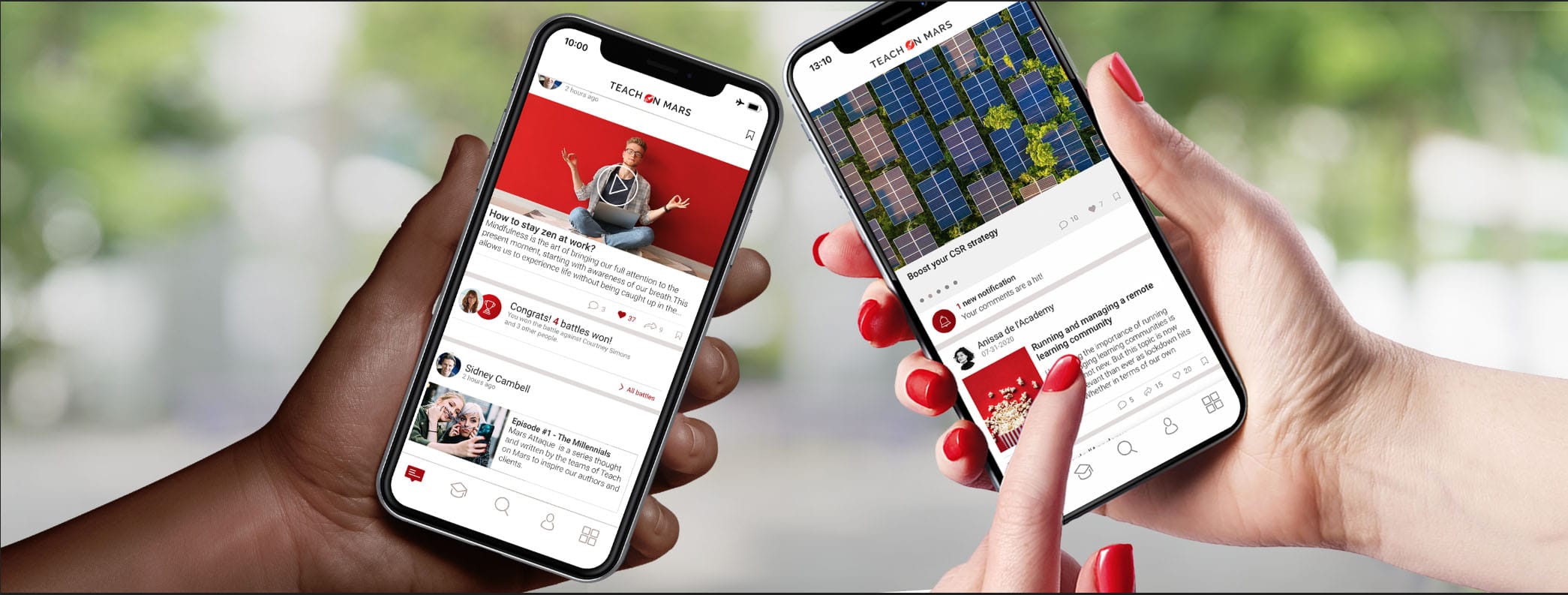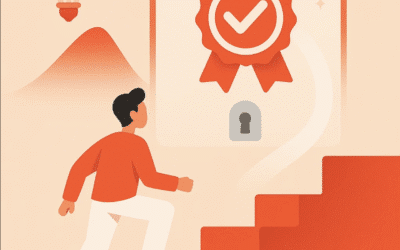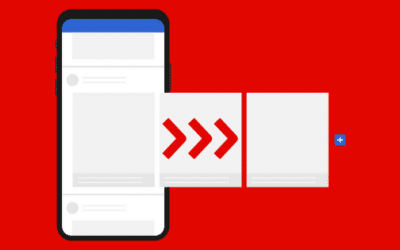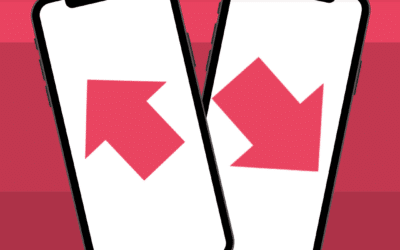Microlearning is a performance-driven learning method that uses learning sessions or chunks of just a few minutes focused on a single goal. More than just another of today’s latest learning and development fads, it is becoming a must for digital training with proven pedagogical effectiveness.
Better anchoring of knowledge
Recent years have seen a dramatic shortening of the units of time associated with L&D training design. From days, we shifted to hours with e-learning, and now – with the advent of mobile training – to minutes. Microlearning, based on short, “bite-sized” sessions with a single objective, makes it possible to anchor knowledge little by little and build effective behaviours without filling the learner’s diary with commitments. Learning adapts to and leverages the rhythm of the learner, using the spacing and repetition effect to help the brain pass information from short- to long-term memory, where it will be more easily retrieved.
Flexibility for learners
Microlearning makes it possible to take advantage of the short time intervals available in learners’ overloaded schedules. Learners will immediately seize the benefit and be more inclined to complete short activities scattered through the day at different times if necessary. And while the trainer will suggest a rate of release of new teaching activities (usually between one activity per day and one per week), the learners are able to adjust this pace as they wish (within the defined limits), and this personalisation will increase the motivation to learn.
The desire for the next activity
Beyond the flexibility it brings, microlearning creates a reflex in the learner by proposing new content at regular intervals (usually daily). In a Teach for Mars microlearning course, activities are unlocked over time. A learner denied access to a locked activity will be all the more motivated to access this activity once it is unlocked. In the meantime, there is a window to revise content already assimilated through easily accessible gamified activities, for instance via the Shake’n’Learn feature. With each new activity unlocked, the learner will receive a prompt to open the app and train. In this way, the smartphone also plays a role in accompanying learners in their ongoing learning strategy.
Microlearning: a real educational advance
Run a Google search on “microlearning” and you get half a million hits. That is a significant number, and as Clarence Thiery, co-founder of the Sydo training consultancy, told French magazine Focus HR: “Micro learning is one of the real pedagogical advances of digital training (…). It integrates easily into everyday life, the content is available when you need it (…) and retention is notably better. Microlearning and mobile learning tools fit in nicely with current digital uses, and because the pace of learning can be adapted, they offer smoother integration of the training activity into the lives of busy professionals. They do not replace face-to-face training, but rather make it more effective”. In his latest video, Jérôme Wargnier, Head of Education at Teach on Mars shares this opinion: “These short activities are faster and considerably less expensive to produce and maintain than the e-learning formats we have been using for some twenty years now. (…) This is (…) an imperative in a world which is in perpetual transformation.”
In short, microlearning is an excellent tool to integrate into an overall training system, offering multiple benefits for both the trainer and the learner. One thing is certain, with attention spans shortening from one generation to the next, microlearning has a bright future ahead of it.

Delphine accompagne depuis plus de 20 les organisations dans leurs grands projets de transformation. Après une première expérience de 7 ans dans le conseil sur des dispositifs d’accompagnement au changement (mise en place de nouveaux modèles d’organisation, accompagnement des collaborateurs dans le cadre de fusions, évolution de pratiques managériales/RH…), elle a intégré le groupe Crossknowledge en 2005 et déployé une offre de services novatrice pour assurer le succès des projets de digital learning dans les grands groupes. Elle a rejoint ensuite Teach on Mars en 2018, et en est le COO depuis 2021. Elle pilote actuellement le développement du portefeuille de clients existants ainsi que les activités de notoriété de la marque.




